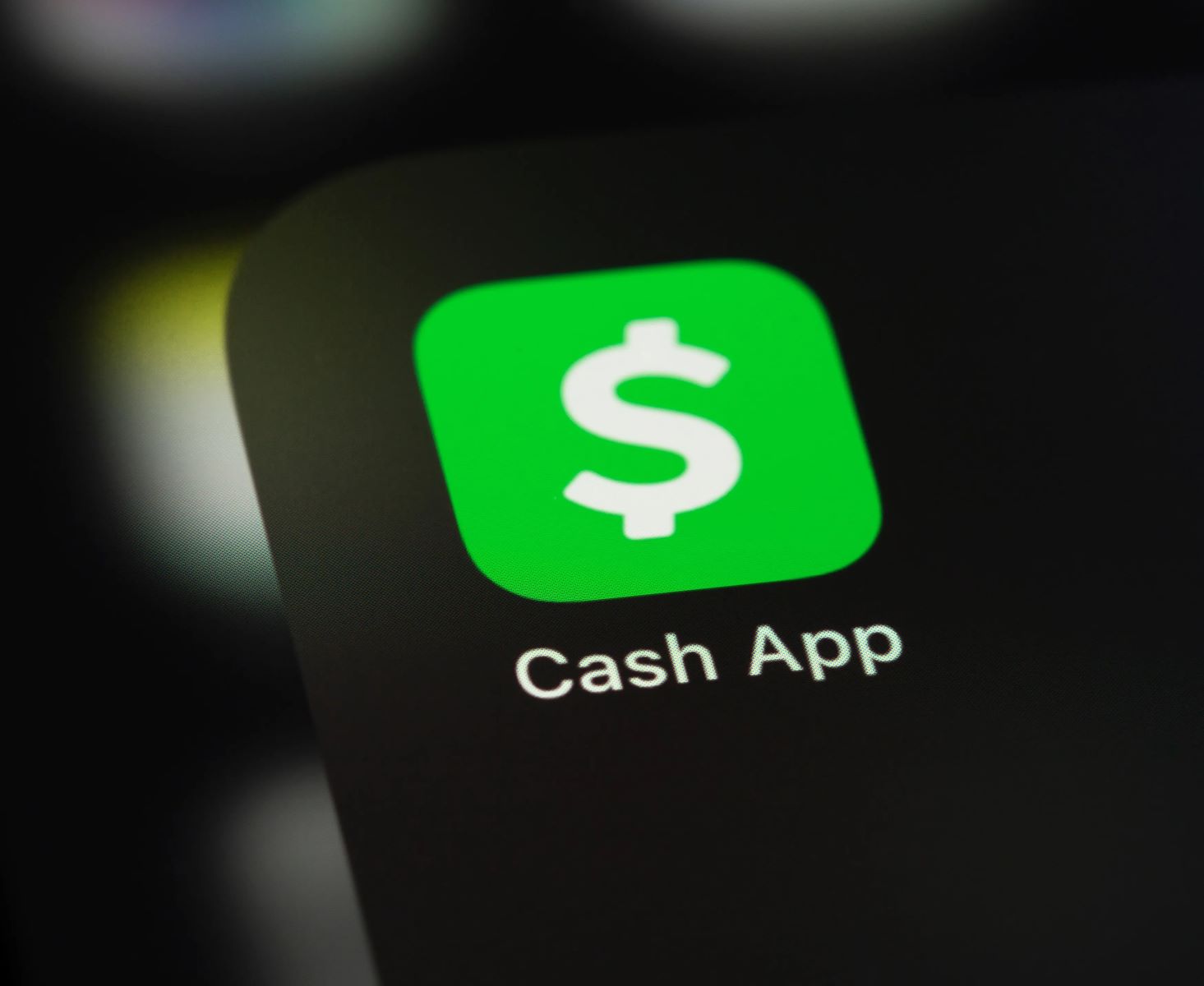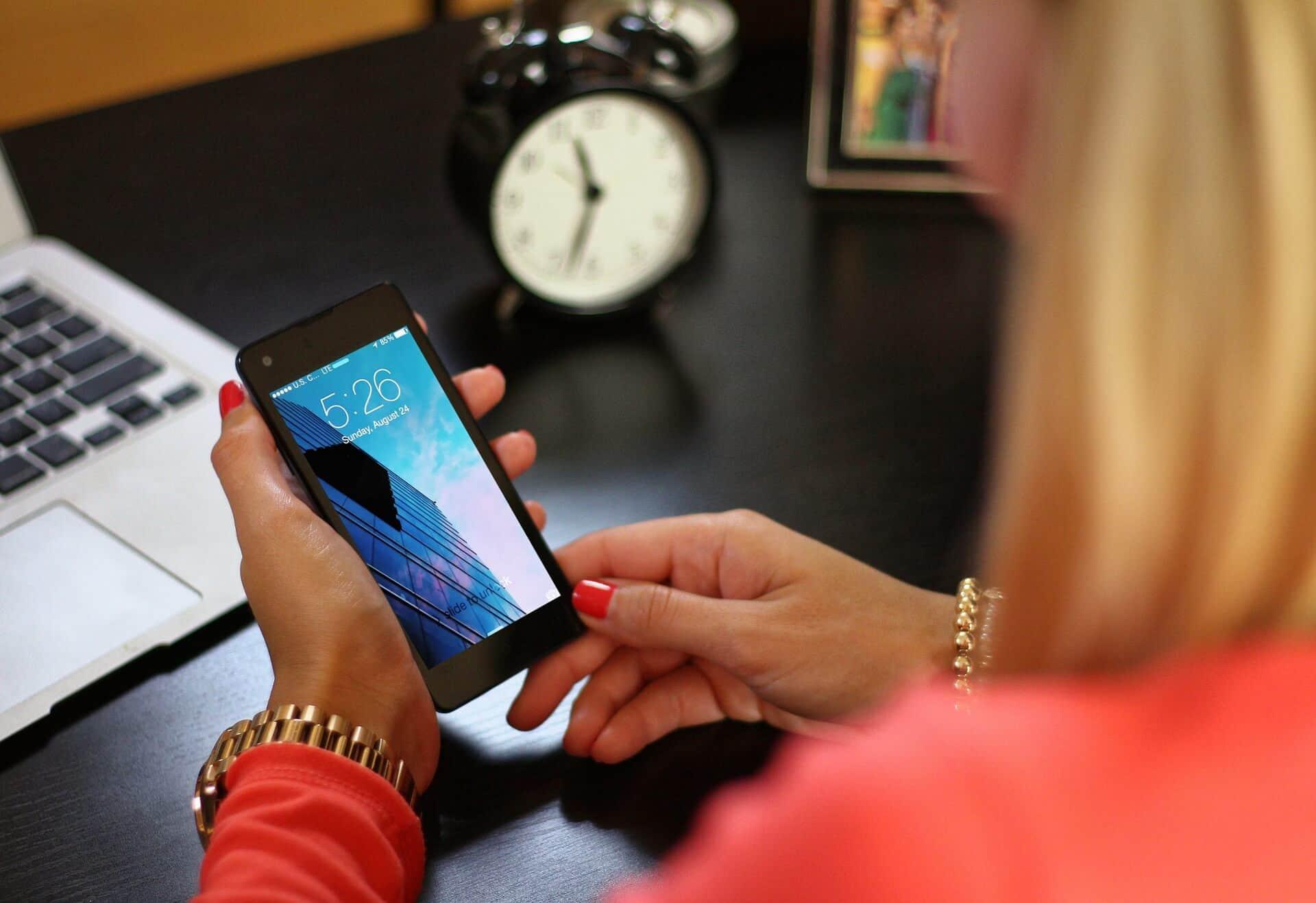Home>Business and Finance>My Cash App Was Hacked And Money Was Stolen! Here’s What You Need To Know.


Business and Finance
My Cash App Was Hacked And Money Was Stolen! Here’s What You Need To Know.
Published: January 15, 2024
Learn what to do if your Cash App is hacked and money is stolen. Protect your finances with our expert advice. Stay informed and take action.
(Many of the links in this article redirect to a specific reviewed product. Your purchase of these products through affiliate links helps to generate commission for Regretless.com, at no extra cost. Learn more)
Table of Contents
Introduction
Imagine waking up one morning to find that your hard-earned money has vanished from your Cash App account, leaving you in a state of shock and disbelief. Unfortunately, this nightmare became a reality for many individuals who fell victim to Cash App hacking. As the popularity of digital payment platforms continues to soar, the risk of unauthorized access and fraudulent activities has become a prevalent concern. In this article, we will delve into the unsettling experience of having a Cash App account hacked and money stolen, shedding light on the crucial steps to take in such a distressing situation.
The sense of security and convenience offered by Cash App, a widely used peer-to-peer payment service, has undoubtedly revolutionized the way people handle their financial transactions. However, the increasing reliance on this digital platform has also made it a prime target for cybercriminals seeking to exploit vulnerabilities and gain unauthorized access to users' accounts. The repercussions of falling victim to Cash App hacking can be financially and emotionally devastating, making it essential for users to be well-informed about the potential risks and protective measures.
In the following sections, we will explore the intricacies of Cash App, uncover the methods through which accounts can be compromised, and provide invaluable insights into safeguarding your funds from malicious attacks. By understanding the underlying factors that contribute to Cash App hacking and equipping ourselves with proactive strategies, we can mitigate the likelihood of falling prey to such distressing incidents. Join us on this journey to fortify your knowledge and protect your hard-earned money from the perils of digital theft.
Read more: Circle K Money Orders: What You Need To Know
What is Cash App?
Cash App, developed by Square, Inc., is a popular mobile payment service that enables users to send, receive, and request money from family, friends, or businesses. It offers a convenient and user-friendly platform for conducting financial transactions, making it a favored choice among individuals seeking seamless peer-to-peer payments and other monetary exchanges.
With its intuitive interface and diverse functionalities, Cash App has transformed the way people handle their money. Users can link their bank accounts or debit cards to the app, allowing for swift transfers and effortless management of funds. Additionally, Cash App facilitates the purchase of stocks and cryptocurrencies, broadening its scope beyond traditional money transfers.
One of the defining features of Cash App is its Cash Card, a customizable debit card linked to the user's Cash App balance. This physical card can be used for in-store purchases or ATM withdrawals, further enhancing the accessibility and utility of the Cash App ecosystem.
Furthermore, Cash App has incorporated a range of supplementary services, including the ability to invest in stocks and Bitcoin, receive direct deposits, and even participate in Cash App's Boost program, offering discounts at various merchants.
The platform's widespread adoption can be attributed to its straightforward setup process, minimal fees, and swift transaction processing. As a result, Cash App has garnered a loyal user base and has become an integral part of many individuals' financial routines.
In essence, Cash App serves as a versatile financial tool that streamlines money transfers, fosters investment opportunities, and simplifies everyday spending. Its seamless integration with digital wallets and banking systems has positioned it as a prominent player in the realm of digital payments, catering to the evolving needs of modern consumers.
How was my Cash App hacked?
Cash App hacking can occur through various means, often stemming from security vulnerabilities, user oversight, or deceptive tactics employed by malicious entities. Understanding the methods through which Cash App accounts can be compromised is crucial in fortifying your defenses against potential threats. Here are some common scenarios that can lead to Cash App hacking:
-
Phishing Scams: Cybercriminals may employ phishing techniques to trick users into divulging their login credentials or personal information. This can manifest in the form of deceptive emails, text messages, or fraudulent websites designed to mimic the official Cash App interface. Unsuspecting users may unwittingly provide their sensitive details, allowing hackers to gain unauthorized access to their accounts.
-
Unauthorized Access to Devices: If a user's mobile device or computer is compromised, either through malware or unauthorized access, it can pave the way for Cash App hacking. Malicious software or unauthorized individuals gaining access to the device can potentially obtain login credentials or manipulate transactions without the user's knowledge.
-
Weak Passwords and Security Practices: Utilizing weak or easily guessable passwords, as well as reusing the same credentials across multiple platforms, can significantly heighten the risk of Cash App hacking. Additionally, neglecting to implement security features such as two-factor authentication can leave accounts vulnerable to unauthorized access.
-
Social Engineering Tactics: Hackers may employ social engineering tactics to manipulate individuals into revealing their login credentials or personal information. This can involve coercive or deceitful methods aimed at exploiting human psychology to gain access to sensitive data.
-
Fraudulent Transactions: In some cases, fraudulent transactions initiated by external parties may compromise a user's Cash App account. This can occur through unauthorized access to linked bank accounts or debit cards, leading to unauthorized transfers or withdrawals within the Cash App platform.
By familiarizing yourself with these potential avenues of Cash App hacking, you can adopt proactive measures to bolster the security of your account and mitigate the risk of falling victim to fraudulent activities. Vigilance, adherence to security best practices, and prompt action in response to suspicious activities are pivotal in safeguarding your financial assets within the Cash App ecosystem.
What to do if your Cash App is hacked
Discovering that your Cash App account has been hacked can be a distressing and disorienting experience. However, swift and decisive action is crucial in mitigating the potential impact of unauthorized access and fraudulent activities. If you suspect that your Cash App account has been compromised, here are the essential steps to take:
-
Secure Your Account: Immediately change your Cash App password to prevent further unauthorized access. Select a strong and unique password that includes a combination of letters, numbers, and special characters to enhance security.
-
Contact Cash App Support: Reach out to Cash App's customer support team as soon as possible to report the unauthorized access to your account. Provide them with detailed information about the suspicious activities, including any unauthorized transactions or changes made to your account.
-
Review Your Transactions: Thoroughly review your transaction history within the Cash App to identify any unauthorized or fraudulent transactions. Take note of the specific dates, times, and amounts associated with these transactions, as this information will be valuable when reporting the incident to Cash App support.
-
Secure Linked Accounts: If your linked bank account or debit card has been compromised as a result of the Cash App hacking, contact your financial institution immediately to report the unauthorized transactions and request a temporary freeze on your account if necessary.
-
Enable Two-Factor Authentication: If you haven't already done so, enable two-factor authentication (2FA) for your Cash App account. 2FA adds an extra layer of security by requiring a verification code in addition to your password, significantly reducing the risk of unauthorized access.
-
Monitor Your Account: Continuously monitor your Cash App account for any further suspicious activities or unauthorized transactions. Stay vigilant and promptly report any additional unauthorized actions to Cash App support.
-
File a Report with Law Enforcement: In cases of significant financial loss or suspected criminal activity, consider filing a report with local law enforcement authorities. Provide them with all relevant details and documentation related to the Cash App hacking incident.
-
Stay Informed: Keep abreast of updates and communications from Cash App regarding the resolution of the hacking incident. Follow any guidance provided by Cash App support to secure your account and prevent future unauthorized access.
By promptly taking these proactive measures, you can mitigate the potential impact of Cash App hacking and work towards restoring the security of your account. It is essential to remain vigilant and responsive in the face of such incidents, prioritizing the protection of your financial assets and personal information.
How to protect your Cash App from being hacked
Safeguarding your Cash App account from potential hacking attempts necessitates a proactive and comprehensive approach to security. By implementing the following measures, you can significantly reduce the risk of unauthorized access and fraudulent activities, fortifying the integrity of your financial assets within the Cash App ecosystem.
1. Strengthen Your Password
Selecting a robust and unique password is fundamental in fortifying the security of your Cash App account. Avoid using easily guessable passwords or reusing the same credentials across multiple platforms. A strong password should comprise a combination of uppercase and lowercase letters, numbers, and special characters, enhancing its resilience against unauthorized intrusion.
2. Enable Two-Factor Authentication (2FA)
Implementing two-factor authentication adds an additional layer of security to your Cash App account. By requiring a verification code in addition to your password, 2FA significantly reduces the likelihood of unauthorized access, serving as a formidable deterrent against hacking attempts.
3. Exercise Vigilance Against Phishing Attempts
Remain cautious of phishing scams that seek to deceive users into divulging their login credentials or personal information. Be wary of unsolicited emails, text messages, or websites purporting to be affiliated with Cash App, and refrain from providing sensitive details unless you can verify the authenticity of the communication.
4. Regularly Monitor Your Account Activity
Frequently reviewing your transaction history within the Cash App allows you to promptly identify any unauthorized or suspicious activities. Stay vigilant and report any irregularities to Cash App support, enabling swift intervention to mitigate potential security threats.
5. Keep Your Device Secure
Maintaining the security of the devices used to access your Cash App account is paramount. Install reputable antivirus software, keep your operating system and applications updated, and refrain from jailbreaking or rooting your devices, as these actions can compromise their security and render them susceptible to hacking.
6. Educate Yourself on Security Best Practices
Staying informed about evolving security threats and best practices is essential in fortifying your defenses against potential hacking attempts. Regularly acquaint yourself with security guidelines provided by Cash App and other reputable sources, empowering you to make informed decisions to protect your account.
7. Exercise Caution with Third-Party Applications
Be cautious when granting permissions to third-party applications that interact with your Cash App account. Verify the legitimacy and security protocols of such applications before integrating them with your Cash App, minimizing the risk of unauthorized access through compromised third-party services.
By diligently adhering to these proactive measures, you can substantially enhance the security of your Cash App account and mitigate the risk of falling victim to hacking attempts. Prioritizing the protection of your financial assets through proactive security practices is instrumental in fostering a safe and secure digital payment experience.
Conclusion
In conclusion, the pervasive threat of Cash App hacking and unauthorized access underscores the critical importance of fortifying the security of our digital financial transactions. The distressing experience of having a Cash App account hacked and money stolen serves as a stark reminder of the vulnerabilities inherent in digital payment platforms. However, by equipping ourselves with comprehensive knowledge and proactive security measures, we can navigate the digital landscape with enhanced resilience and confidence.
The multifaceted nature of Cash App, encompassing peer-to-peer payments, investment opportunities, and the Cash Card, has redefined the dynamics of financial interactions. Its seamless integration with banking systems and user-friendly interface has garnered widespread adoption, making it an indispensable tool for modern financial management. However, the allure of convenience and accessibility must be balanced with a steadfast commitment to security and vigilance.
Understanding the methods through which Cash App accounts can be compromised, such as phishing scams, unauthorized access to devices, and weak security practices, empowers users to preemptively safeguard their accounts. Swift and decisive action in response to suspected hacking incidents, including securing the account, contacting support, and monitoring transactions, is pivotal in mitigating the impact of unauthorized access and fraudulent activities.
Moreover, proactive security measures, including strengthening passwords, enabling two-factor authentication, and exercising vigilance against phishing attempts, serve as formidable deterrents against hacking attempts. By cultivating a culture of security consciousness and staying abreast of evolving threats, users can fortify the integrity of their Cash App accounts and protect their financial assets from exploitation.
As we navigate the digital landscape, the onus falls upon both users and platform providers to uphold the highest standards of security and transparency. Cash App's commitment to enhancing user security through robust authentication mechanisms, prompt support response to hacking incidents, and educational resources is pivotal in fostering a secure digital payment environment.
Ultimately, the experience of having a Cash App account hacked and money stolen underscores the imperative of proactive security measures and user vigilance. By embracing these principles, we can fortify the resilience of our digital financial interactions and foster a safe, secure, and empowering environment for financial management within the Cash App ecosystem.













